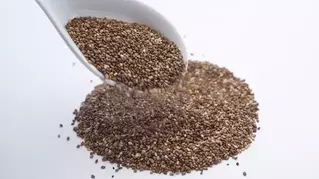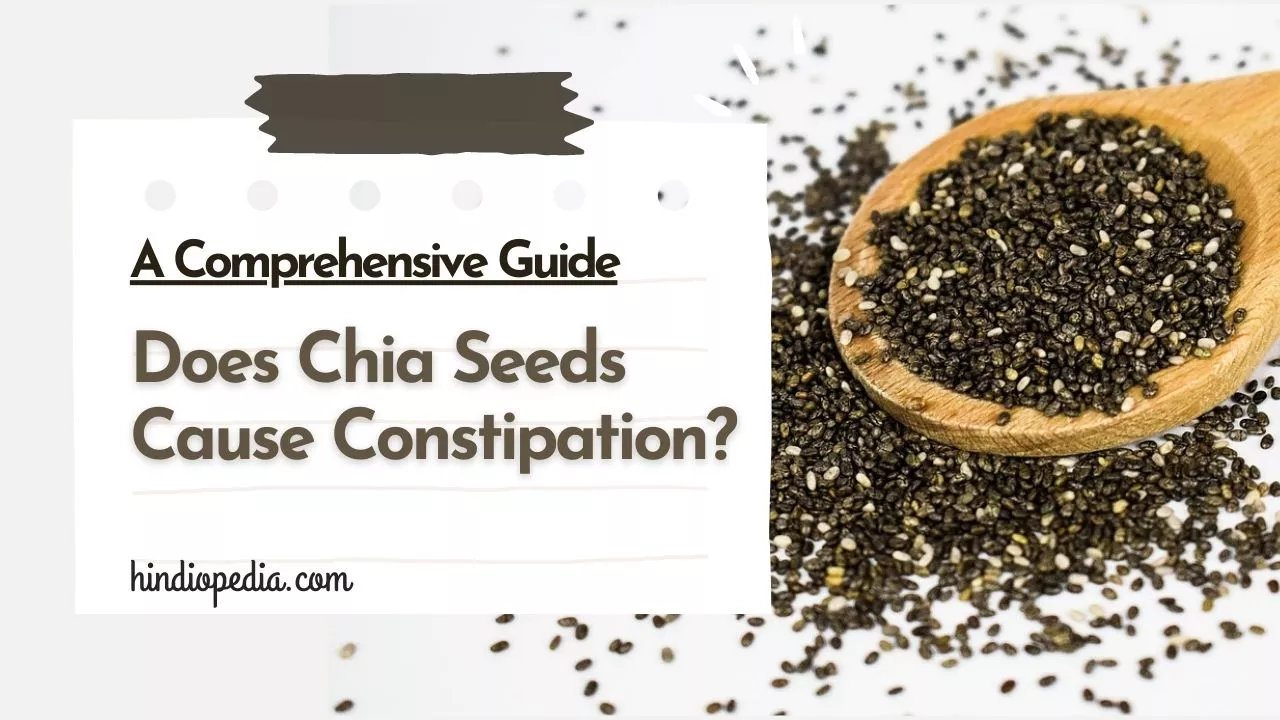Does Chia Seeds Cause Constipation? The Truth About Chia Seeds and Constipation
Chia seeds are tiny, black seeds that are rich in fiber, protein, omega-3 fatty acids, antioxidants, and minerals.
They have been touted as a superfood that can improve digestion, lower cholesterol, and blood pressure, and promote weight loss.

But do Chia Seeds cause constipation or other digestive problems?
Here’s what you need to know.
Also read: Do Chia Seeds Make You Fart
Does Chia Seeds Cause Constipation?
Chia seeds are actually known for their high fiber content and can help relieve constipation.
However, it is important to drink enough water when consuming chia seeds as they absorb moisture in your body and can cause constipation and hard stools if you don’t drink enough water
How Chia Seeds Affect Digestion
Chia seeds have a high fiber content providing 11 grams of fiber in each 1-ounce (28-gram) serving.
Fiber is essential for healthy digestion as it adds bulk and weight to stools, which softens them and helps them pass.
Fiber also feeds the beneficial bacteria in the gut which can improve gut health and immunity.
Chia seeds can absorb a lot of water, up to 10 times their weight. When they do, they take on a gel-like consistency. This gel-forming property of chia seeds can help prevent constipation by lubricating the intestines and easing the movement of stools.
It can also help prevent dehydration, which is a common cause of constipation.
However, eating too many chia seeds without enough water can also cause constipation or hard stools. This is because chia seeds suck up moisture from your body like a sponge, and if you don’t drink enough water to compensate for the moisture loss, you may end up with dry and compacted stools that are difficult to pass.
How Much Chia Seeds Should You Eat?
There is no official recommendation for how much chia seeds you should eat per day.
However, some experts suggest that 1 to 2 tablespoons (15 to 30 grams) of chia seeds are a reasonable amount for most people. This amount can provide you with about 20% to 40% of your daily fiber needs as well as other nutrients.
However, you should also pay attention to your individual tolerance and reaction to chia seeds.
Some people may experience bloating, gas, cramping, or diarrhea after eating chia seeds. These side effects may be due to the high fiber content of chia seeds or to an allergic reaction or sensitivity to chia seeds.
If you experience any digestive discomfort after eating chia seeds, you may want to reduce the amount you eat or avoid them altogether.
You may also want to consult your doctor before eating chia seeds if you have any medical conditions or take any medications that may interact with chia seeds.
How to Eat Chia Seeds Safely
To prevent constipation or other digestive problems from eating chia seeds, here are some tips to follow:
#1 Drink Plenty of Water
As mentioned earlier, chia seeds absorb a lot of water and can cause dehydration if you don’t drink enough fluids.
Aim for at least 8 glasses of water per day, and drink more if you exercise or sweat a lot.
#2 Soak Chia Seeds Before Eating Them
Soaking chia seeds in water or other liquids for at least 10 minutes can help them form a gel and prevent them from absorbing water from your body.
You can soak chia seeds in water, milk, juice, yogurt, smoothies, or other beverages of your choice.
#3 Start With a Small Amount
If you are new to eating chia seeds, start with a teaspoon or less per day and see how your body reacts.
You can then increase the amount gradually over time until you reach the desired amount.
#4 Eat Chia Seeds With Other Foods
Eating chia seeds alone may not provide enough nutrients or calories for your body.
You can add chia seeds to your oatmeal, cereal, salads, soups, baked goods, or other dishes for extra fiber and texture.
Can Chia Seeds Cause Diarrhea?
Chia seeds can cause diarrhea in some people, especially if they eat too many chia seeds or have a sensitive stomach.
This may be due to the high fiber content of chia seeds, which can speed up the movement of stools and cause loose stools.
To prevent diarrhea, drink plenty of water, soak chia seeds before eating them, and start with a small amount and increase gradually.
Can Chia Seeds Lower Cholesterol and Blood Pressure?
Chia seeds may lower cholesterol and blood pressure by providing omega-3 fatty acids, fiber, and antioxidants.
Omega-3 fatty acids can reduce inflammation and improve blood vessel function.
Fiber can bind to cholesterol and prevent it from being absorbed into the bloodstream.
Antioxidants can protect the cells from oxidative stress and damage.
However, more research is needed to confirm the effects of chia seeds on cholesterol and blood pressure.
Can Chia Seeds Cause Allergic Reactions?
Chia seeds can cause allergic reactions in some people especially those who are allergic to sesame seeds or mustard seeds.
Symptoms of an allergic reaction may include hives, itching, swelling, difficulty breathing, nausea, vomiting, or anaphylaxis.
If you have any of these symptoms after eating chia seeds, seek medical attention immediately.
Also read: Do Chia Seeds Make You Lose Weight
The Bottom Line
Chia seeds are a nutritious and versatile food that can benefit your digestion and overall health.
However, eating too many chia seeds without enough water can cause constipation or other digestive issues.
To avoid these problems, drink plenty of water, soak chia seeds before eating them, start with a small amount and increase gradually, and eat chia seeds with other foods.
By following these tips, you can enjoy the benefits of chia seeds without the side effects.






